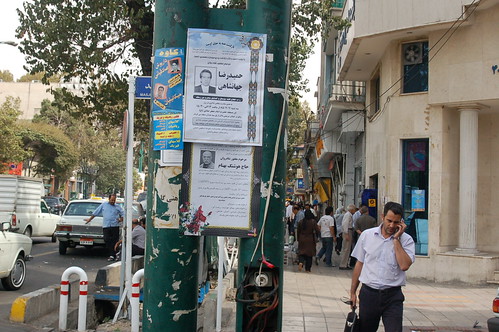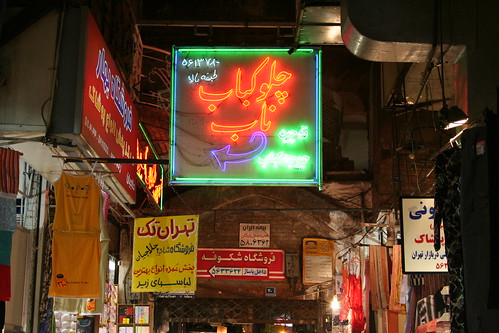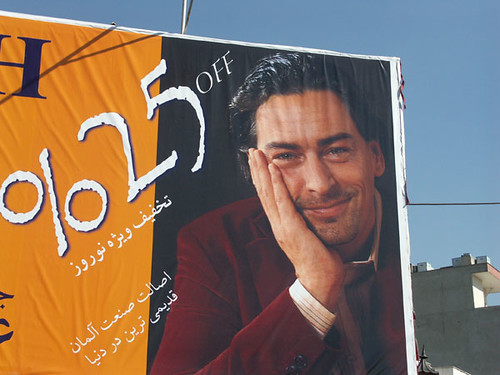We spend a lot of time focused on differences because we’re programmed to. That’s a crude survival mechanism. As Mitch, Hugh, and CC pointed out on the most recent episode of Media Hacks, the one silver lining in the current Iranian… situation?… is that our prejudices about what Iran and its people are like are rapidly shattering. Once you look past the subjects of the riots, you realize that the streets in Tehran don’t look all that different.
Here’s an even broader look, the marketing in Tehran, courtesy of a bunch of Flickr photos.
Are we so different? Our marketing says we’re remarkably similar. Any American in Tehran could easily figure out, not speaking a word of Persian, exactly what’s going on in most of those ads. I’d bet you 10,000 rials that if I went to any suburban Iranian family’s home, I could tell you exactly what each junk mail ad was advertising without reading a lick of Farsi.
This could be any street in America, Tehran, Jerusalem, or Tokyo:
In the end, we are so much more alike than we are different.
Our marketing departments agree.
Did you enjoy this blog post? If so, please subscribe right now!
Get this and other great articles from the source at www.ChristopherSPenn.com









Leave a Reply